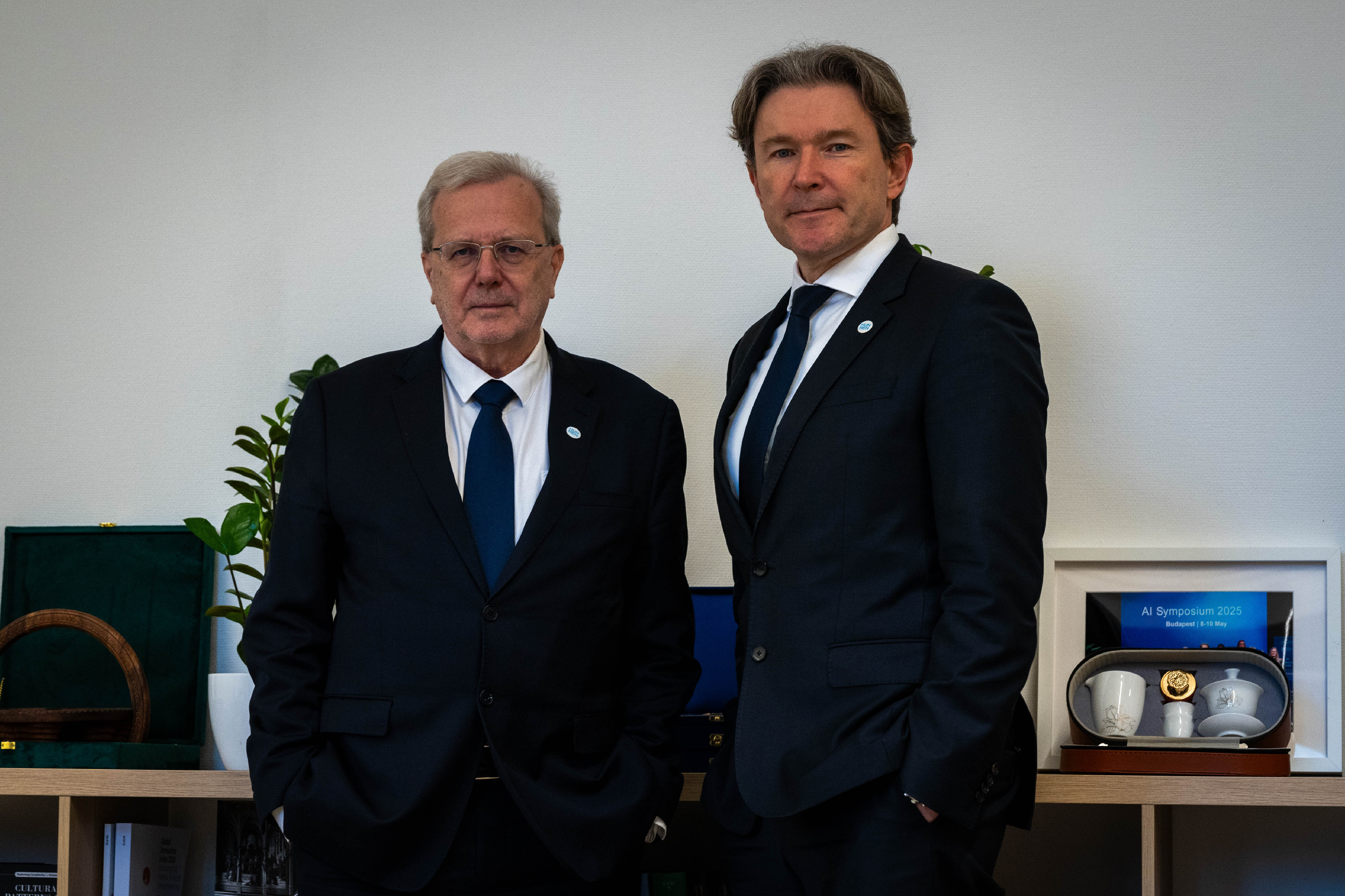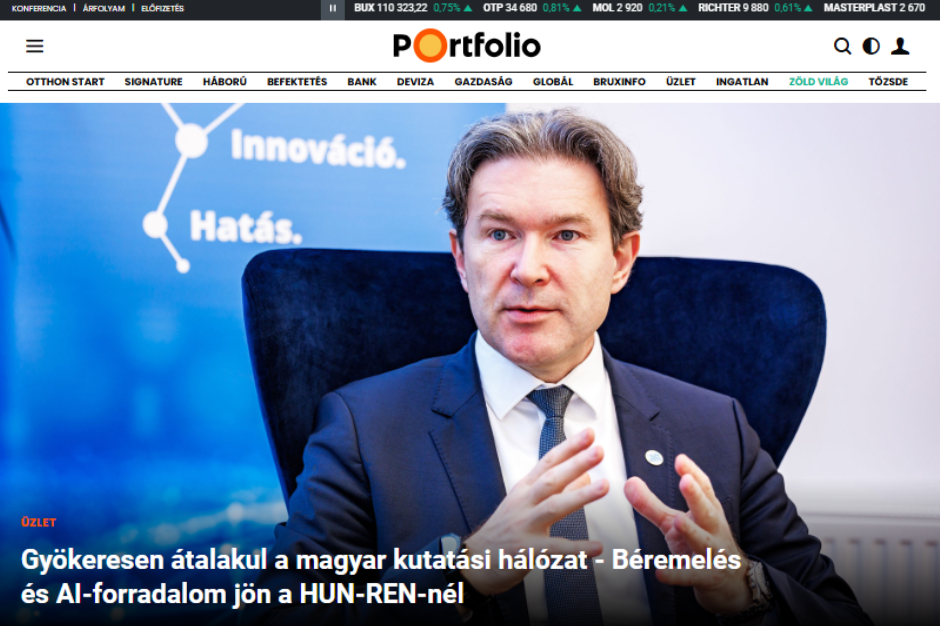2022 ELKH Academic Awards Presented in the Framework of a Scientific Conference
21 pre-eminent researchers of the Eötvös Loránd Research Network received scientific awards at the 2022 ELKH Award Ceremony. The Eötvös Loránd Research Network Secretariat established the Eötvös Loránd Research Network Prize and the Róbert Bárány Prize applicable to young researchers in 2021 to recognize outstanding academic performance within the network. In addition, it has also launched the distribution of the Research Professor Emeritus title. This year's award ceremony and scientific conference was held on November 10 in the conference hall of the ELKH Research Centre for Natural Sciences.
In his introductory speech Miklós Maróth, President of the Eötvös Loránd Research Network praised the vital role of researchers in ELKH's achievements, and said they were the research network’s greatest asset. He summarized the strategic directions and programs launched by the ELKH Secretariat in the past year aimed at developing the research network. He also announced that ELKH initiated two pocket book series this year to help transfer some of the valuable knowledge available across the research network. The New Scientific Pocket Library series launched in early June in cooperation with Typotex Publishing is targeting university students and the scientific community, and two volumes have been printed to date. The educational series Kaleidoscope Books launched jointly with Libri Publishing aims to present the latest and most exciting results of domestic research in a comprehensive, understandable way to a wider audience with an interest in science. The first four volumes of this series are already available in the Libri bookstores and online at libri.hu, and with the support of the Foundation for Hungarian Culture each volume of the series will become available at secondary school libraries across the country.
Miklós Maróth said, “Attracting and retaining young, talented researchers, supporting the return of young talent working abroad and educating the next generation of researchers remain our priority. It is essential that young researchers have the opportunity to take part in interesting domestic and international research projects that are in line with the latest trends and technologies and that seek answers and solutions to today's challenges, and also to build international relationships. We are launching programs to support researcher mobility and successful participation in Horizon Europe and other international programs. The awards and titles presented today clearly illustrate the excellent performance of the talented researchers working in the research network.”
At the award ceremony, the Minister of State for innovation and higher education, László György also addressed the award recipients.
The award ceremony was followed by four scientific presentations. First, Sierd Cloetingh, professor at the University of Utrecht, former President of Academia Europaea, former Vice-President of the European Research Council, and former President of the European Association for Cooperation in Science and Technology, gave a lecture entitled “Europe: a natural laboratory for frontier research in Earth sciences”. This was followed by professor Béla Pukánszky, chemical engineer, full member of the Hungarian Academy of Sciences, research professor at the Institute of Materials and Environmental Chemistry of the ELKH Research Centre for Natural Sciences, and this year's winner of the ELKH Award, whose presentation was entitled “Plastics. Friend or enemy? Science or quackery?” Ádám Póti, doctor of biological sciences, research fellow at the Institute of Enzymology of the ELKH Research Centre for Natural Sciences, a winner of the Róbert Bárány Award, presented a lecture with the title “Genomic imprints of the lack of homologous recombination”. Then Mária Gósy, Széchenyi Prize-winning linguist, phonetician, doctor of linguistics, scientific advisor of the Institute for General and Hungarian Linguistics of the ELKH Hungarian Research Centre for Linguistics, and professor emeritus of the Department of Applied Linguistics and Phonetics at ELTE BTK, gave a lecture with the title “Special phenomena of speech”.
Eötvös Loránd Research Network Prize
The purpose of establishing and presenting the Eötvös Loránd Research Network Prize (ELKH Prize) is primarily to offer moral and financial recognition to researchers belonging to the network for their outstanding professional work. The award is presented annually to a researcher who enjoys widespread appreciation in the scientific community at home and abroad, has an exceptional professional career, has achieved outstanding scientific performance, notable research results or patents.
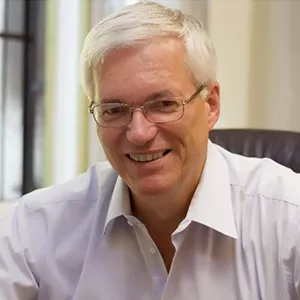
Recipient of the Eötvös Loránd Research Network Prize in 2022
Béla Pukánszky
Research Centre for Natural Sciences
Béla Pukánszky, chemical engineer and full member of the Hungarian Academy of Sciences, defended his chemical engineering degree in 1973 at the Faculty of Chemical Engineering of the Budapest University of Technology. From 1973 to 1978, he worked at the Organic Chemical Research Institute, then from 1978 he was the scientific group leader of the Central Chemical Research Institute, before being appointed head of department. From 1980, he spent a year in the United States. Between 1994 and 2015, he was the head of the Department of Plastics and Rubber Industry of the Faculty of Chemical Engineering of the Budapest University of Technology and Economics (BME), then the Department of Physical Chemistry and Materials Science. In parallel to this, he also worked as a group leader at the Institute of Materials and Environmental Chemistry of the Research Centre for Natural Sciences. Béla Pukánszky was awarded a candidatr for chemical sciences in 1988 and a doctorate in chemical sciences in 1994, as well as a habilitation at the BME. He has been a corresponding member of the Hungarian Academy of Sciences since 2004, and a full member since 2010. In 2015, he received the Middle Cross of the Hungarian Order of Merit, while his outstanding teaching and research work was recognized in 2016 with the József Nádor Memorial Medal.
His career in education has been very rich. He has lectured on numerous different subjects and is the author of five university notes. In the past decades, he has been the supervisor for more than 100 graduate and dissertation students. His work to establish a new school of thought is indicated by the fact that 25 people have completed their doctorate or PhD theses under his guidance. He established numerous international collaborations with universities, research institutes, and companies, which relationships greatly helped the operation of his university department. In 2005, he was awarded the Görög Jenő Award, which is awarded by the BME Faculty of Chemical Engineering and Bioengineering for excellent teaching and pedagogical work based on the proposals of students. In 2013, he received the Master Teacher Gold Medal of the Hungarian National Science Student Council. Through his educational work over the past few decades, he has made a significant contribution to the education of young researchers in Hungary.
Béla Pukánszky achieved his most significant scientific results in the study of interfacial interactions in heterogeneous polymer systems. He set up a model to describe the composition dependence of the yield stress of such materials. His research includes the study of the degradation of polyolefins, nanocomposites, and the study of biodegradable and medicinal polymers. Recently, he has explored the structures of polymer/layer silicate nanocomposites and proposed a method for their quantitative characterization. He identified the micromechanical deformation processes taking place in composites reinforced with natural fibers. He produced biodegradable polymers and composites using various methods and determined their characteristics. As a ground-breaker in the field, he created the successful conference series Bio-Based Polymers and Composites, of which he is the president and one of the main organizers. He has published 419 scientific papers and is the author or co-author of 27 book chapters. His publications have been cited in more than 8,803 cases, and his H-index score is 56.
Róbert Bárány Prize
The purpose of establishing and awarding the Róbert Bárány Prize is to recognize the outstanding scientific work of young researchers under the age of 40 working in the ELKH network. The evaluation is based on the scientific activity of the applicants and the results they have achieved in their career to date. When awarding the prizes, research excellence and an innovative approach to scientific work are also taken into account, as well as the potential and advancement opportunities inherent in research work, such as participation in projects and involvement in international collaborations. In the case of female researchers raising minor children under the age of 14, the age limit of the application is extended by two years per child, up to a maximum of four years.
2022 winners of the Róbert Bárány Prize:
Mathematics and natural sciences

Dávid Bajusz
Research Centre for Natural Sciences
Dávid Bajusz is a postdoctoral researcher at one of the most prominent Hungarian scientific workshops for computer-aided drug design, and an internationally recognized practitioner in the field of cheminformatics and chemometrics. He is an external lecturer at the Budapest University of Technology and Economics, and, as a supervisor, plays an important role in the education of new students in his research field. He also carries out outstanding publication activities, his scientific publication results in the last three years: number of articles 26, of which 8 were published in prestigious professional journals rated D1, and 12 in journals rated Q1, with a total impact factor of 130.5; Hirsch index 15. Based on his publication performance, he belongs to the top 10 percent of his age group among Hungarian researchers. Recently, he was placed high on the list ranking the world's most successful medicinal chemists in terms of scientific visibility. He has earned the Róbert Bárány Prize for his thematically diverse, effective research and teaching performance, and his important work as a science administrator.

Roland Molontay
ELKH-BME Stochastics Research Group, ELKH supported research group
The three main topics of Roland Molontay's research are network science, educational data science, and research and development related to anomaly detection in cooperation with industrial partners. In all three fields, he carries out outstanding, internationally recognized scientific work, and is a regular speaker at international conferences. In addition, his research has significant potential for practical application, his results in educational data science are used, for example, in higher education decision-making. Scientific publication results in the last three years: number of articles 17, of which 11 were published in prestigious professional journals rated D1 or Q1 with a total impact factor of 44.011; Hirsch index 8. His work as a science administrator and manager of talent is also of outstanding quality. His students are regular participants of the National Scientific Student Conference (OTDK), where, among other things, they won two first and second prizes. He organized and now manages the Human and Social Data Science Laboratory (HSDSLab), which consists of young researchers who have demonstrated significant scientific results.
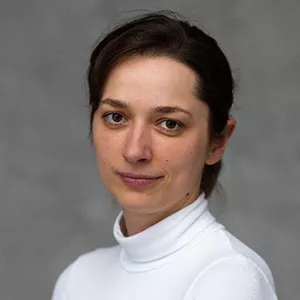
Zsuzsanna Pápa
Wigner Research Centre for Physics
Zsuzsanna Pápa began work on nanooptical research at Wigner Research Centre for Physics in parallel with her doctoral studies. She has achieved groundbreaking results in two different, state-of-the art research topics within optics and photonics: ellipsometry and nanooptics. Besides publishing papers in the leading journals on nanooptics, her most important achievement is the combined application of these two research areas to explore the effect of localized electromagnetic fields on the dielectric function of materials. It is also important to highlight that although she is an experimentalist, she has achieved world-class results in numerical modeling. She solves the scientific problems she faces with outstanding problem solving ability and efficiency. During her research career so far, she has sought new fundamental and applied research topics that she has considered useful for society. Her scientometric parameters in the past three years: number of peer reviewed papers 11, of these 8 are in journals with D1 or Q1 ranking with a total impact factor of 92; Hirsch index 10.

Parveen Akhtar
Biological Research Centre
Parveen Akhtar has made fundamental findings in the field of primary processes of photosynthetic light energy utilization. She has used state-of-the-art femtosecond laser spectroscopy to determine the rate constants of the excitation energy pathways in the light-harvesting complex II (LHCII), which is the most abundant membrane protein complex in the biosphere and responsible for the absorption and transmission of solar energy. She and her national and international colleagues have identified the primary charge separation step in the pigment–protein complex which contains more than 100 chlorophyll molecules, the so-called photosystem I. This is the most efficient natural light-energy converting system and could be used in future photonics applications. Scientific publication record over the last three years: 16 papers, 6 of which were published in D1 and the rest in Q1 rated journals with a total impact factor of 107.7; Hirsch index 12. Her publication record ranks her in the top 10 percent of researchers in the Biology Division of the Hungarian Academy of Sciences, based on age-adjusted performance.

Ádám Póti
Research Centre for Natural Sciences
The scientific work of Ádám Póti has a place in the international top tier in the fields of cancer genomics and mutagenesis research. He has utilised mainly bioinformatic methods to successfully study the patterns and mechanisms of mutagenic processes occurring in cells lacking the therapeutically relevant BRCA1 and BRCA2 genes, together with the relationships between mutations and responses to important chemotherapeutic drugs. His scientific publication statistics in the last three years: of 8 international papers, 6 were published in D1 or Q1 journals with a total impact factor of 59.103; Hirsch index 7. His work greatly contributed to the introduction of whole genome sequencing-based mutagenesis studies at the Research Centre for Natural Sciences and helped the establishment of the national knowledge base for cancer genome research.
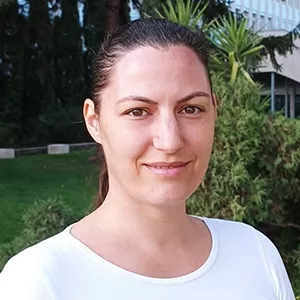
Edina Szűcs
Biological Research Centre
Edina Szűcs conducts high-quality, internationally recognized research in the field of theoretical medicine. Using radioligand binding and G-protein activation assays, she examined Bentley's morphine analogues in rat brain membrane preparations, and studied their binding properties using molecular modeling, which she summarized in her doctoral thesis. The study of schizophrenia animal models at the receptor level and the analysis of the effect of kynurenic acid on the opioid system also belong to her research area. In cooperation with an Argentinian research group, she investigated the changes in the quantity of opioid receptors in rats treated with sodium chloride solution. In addition, she participated in research aimed at studying the effect of different opioid analogues on opioid receptors, as well as observing lateral changes in G-protein activation caused by inflammation in mouse spinal cords and thalamus. Her scientific publication results in the last three years: number of articles 13, of which 9 were published in prestigious professional journals rated Q1 with a total impact factor of 55.688; Hirsch index 7.

Benedek M. Varga
Research Centre for the Humanities
Benedek M. Varga has produced outstanding work in the field of 18th century intellectual history. His article on the accession of Maria Theresa to the throne of Hungary was published in The Historical Journal and investigated the theories that sought to interpret the femininity of the monarch in the context of contemporary political thought. In another paper, published in Modern Intellectual History in 2021, he examined the work of the 18th-century German historian, August Ludwig Schlözer, from a new angle, approaching it from the perspective of Central European Enlightenment and the American Revolution. This article was also a key chapter in his doctoral dissertation, which he completed at the University of Cambridge. Through the connections he established during his studies in England, he made significant contributions to the strengthening of the international presence of the Hungarian historical scholarship. Publication record over the last three years: two articles which appeared in D1 and Q1 peer-reviewed journals with a total impact factor of 1,818; Hirsch index 2.
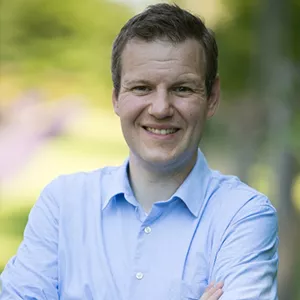
Balázs Páger
Centre for Economic and Regional Studies
Balázs Páger's research interest involves the entrepreneurial ecosystem, particularly the relationship between entrepreneurial activity and the regional entrepreneurial environment. So far, his results suggest that exploring the structure of the regional entrepreneurial ecosystem and developing their particular elements in a tailor-made view may support the creation of quality firms and regional economic development. Scientific publication results in the last three years: number of articles 22, which were published in prestigious professional journals with a total impact factor of 3.312; Hirsch index 8. He has been an active member of the Hungarian Regional Science Association and the European Regional Science Association (ERSA) since 2011 and played a vital role in the preparations for and organization of the 61st annual conference of the European Regional Science Association, which was held in Hungary in 2022, after more than 30 years.

Pál Susánszky
Centre for Social Sciences
Pál Susánszky researches the social inequalities of political participation within political sociology. In his doctoral dissertation, he examined the unequal distribution of social groups participating in politics. His work yielded many new empirical, theoretical and methodological results, including the development of a new index for measuring inequality. He demonstrated that the mechanisms influencing the participation in demonstrations of individual European countries, and within that of various social groups, are significantly different from one another. The results not only confirm the dual pathway social-psychological model of the explanation of collective action, but also supplement this model in several aspects. The current experiments with his research group are aimed at uncovering additional causal mechanisms and searching for potential mediation chains. Scientific publication results in the last three years: number of articles 14, of which 4 were published in prestigious professional journals rated D1 and Q1 with a total impact factor of 9.323; Hirsch index 4.
Research Professor Emeritus title
The purpose of establishing and presenting the title of Research Professor Emeritus is to recognize the successful research careers of researchers from the ELKH network, as well as their significant involvement in scientific organization.
In 2022 the title of Professor Emeritus was awarded to:
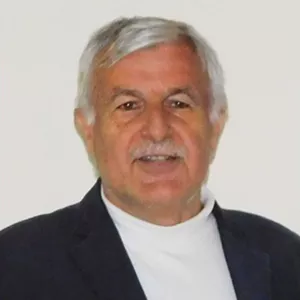
László Bányai
Institute of Earth Physics and Space Science
László Bányai is a doctor of the Hungarian Academy of Sciences, a candidate of technical sciences, and a university professor. He obtained a degree in surveying engineering at the Budapest University of Technology in 1979. He then worked as a researcher at the legal predecessors of the Institute of Earth Physics and Space Science until his retirement. The focus of his research was the development of methods for space geodesy, primarily the geoscience applicability of global positioning satellite systems (GPS/GNSS). He has achieved outstanding success in both his domestic and international tender projects. He has developed processing methods for the 3D combined processing of traditional geodetic, GPS/GNSS and satellite radar interferometry (InSAR) measurements, and for the deformation analysis of repeated measurements. As part of his educational activities, in 1999 he contributed to the GPS-Navigation Engineer training at the Budapest University of Technology, then between 2000 and 2008 he was a university associate professor at the legal predecessors of the University of Sopron, and also participated in doctoral training. His scientific work has been recognized with the Szádeczky-Kardoss Elemér Award and the Academic Award.
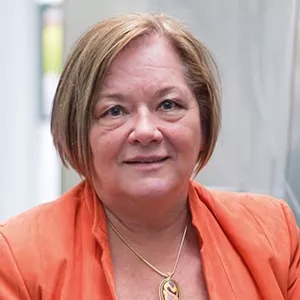
Valéria Csépe
Research Centre for Natural Sciences
Valéria Csépe is research professor emeritus, doctor of the Hungarian Academy of Sciences, and full member of the Hungarian Academy of Sciences. She specializes in experimental psychology and cognitive neuroscience. Her research is primarily aimed at exploring the characteristics of brain activity related to typical and atypical development. Her outstanding professional and administrational work, as well as her role in international and domestic scientific public life, are exemplary. Thanks to her scientific activity, electrophysiological research on children's speech development and related investigations into the brain processes of learning to read have been launched in Hungary. 2006, saw the publication of her book Olvasó agy (The Reading Brain), which received great acclaim in professional circles and saw her present the results of her research on the development and disorders of reading – including dyslexia – in a broader context. She played a decisive role in the establishment of the Brain Imaging Centre of the research site and in laying the foundations for cognitive neuroscience research using complex methods. Her scientific work has been recognized with numerous prizes and awards, including the Széchenyi Gold Medal, the Arnold Ipolyi Science Development Award and the Knight's Cross of the Order of Merit of the Republic of Hungary.
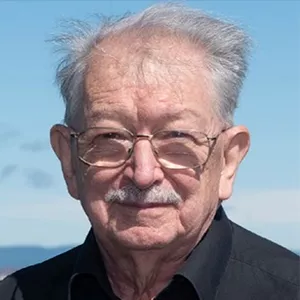
Csaba István Ferencz
Institute of Earth Physics and Space Science
Csaba Ferencz is a private university teacher, and doctor of technical science. He played a pioneering role in the initiation of the creation, organization, teaching and research background of domestic space research. He began his research work as a student at the Budapest University of Technology (BME), where in 1961 he organized the Rocket Science Student Circle, initially between the different faculties, and then universities. In 1964, it became the complex Space Research Group, which he led at the BME. This led to the creation of the BME and ELTE space research groups, as well as the first KFKI space research group. He participated in the development and implementation of the scientific program of the first Hungarian space flight. His research activities range from the development of on-board electronics to satellite remote sensing to the new, pioneering further development of the theory of the propagation of electromagnetic waves. In addition to his work as a technical and natural science researcher, he also deals with global ecological problems and their philosophical foundations, and has also investigated the structural characteristics of the Holy Crown. His scientific work has been recognized, among others, with the Széchenyi Professorial Scholarship, the Zoltán Bay Award, and the Hungarian Heritage Award.
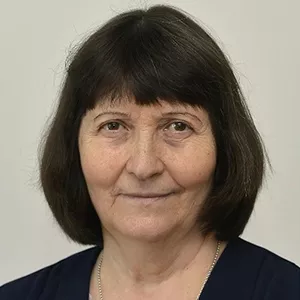
Mária Gósy
Hungarian Research Centre for Linguistics
Mária Gósy is a Széchenyi Prize-winning linguist and phonetician, doctor of linguistics, academic advisor and university professor. She taught at Eötvös Loránd University for more than two decades and was the head of the Department of Phonetics. In addition to universities in Hungary, she has also taught at Boston University and the University of Vienna. During her 47 years as a researcher and head of department at the Hungarian Research Centre for Linguistics, she achieved outstanding results in general phonetics and Hungarian phonetics. She is credited with the development of diagnostics to enable the examination of children's speech perception and speech understanding processes. Her speech filter process has been patented. With her fundamental research, she has significantly contributed to the development of several subfields of both phonetics and psycholinguistics. She has enriched modern speech science with her monographs and numerous technical articles. One of the most important results of her pioneering work was the launch of speech research based on a new approach both in university education and as part of the Phonetics Department of the Institute of Linguistics. Her scientific work has been recognized with numerous awards and honors, including the Széchenyi Prize, the Officer's Cross of the Hungarian Order of Merit, the Academic Award and the Sámuel Brassai Award.
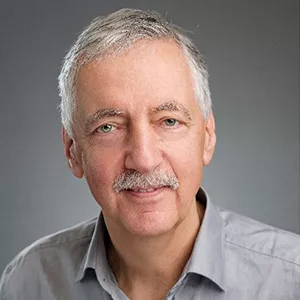
László Halpern
Centre for Economic and Regional Studies
László Halpern is a doctor of the Hungarian Academy of Sciences, and holds a PhD in economics. He began his career in 1974 at the Institute of Economics of the Hungarian Academy of Sciences. From 1997, he was the Institute's deputy director, and he was its director between 2012 and 2016. He publishes regularly in the topics of exchange rate theory, economic policy, corporate behavior and foreign trade. He has participated in numerous international research collaborations, several of which have been supported by the European Commission. He has taught at the University of Lille, the Sorbonne University in Paris, the László Rajk Technical College, the István Széchenyi Technical College, the Invisible College and the Erasmus College. Between 1996 and 2022, he was a research fellow at the Centre for Economic Policy Research in London. From 1997 to 2017, he taught at the Department of Economics of the Central European University in Budapest. He was a member of the advisory board of ELTECON, the academic advisory board of Collegium Budapest, and the research advisory board of the Czech National Bank between 2004 and 2010. In 2012, he participated in the development of the Department of Global Economics at Mechnikov University in Odessa. Between 2008 and 2021, he was a member of the Economics Committee of the Hungarian Academy of Sciences.
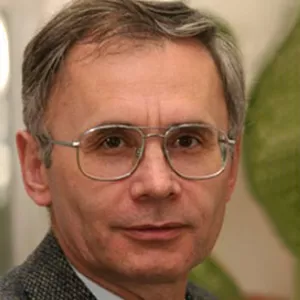
Béla Iván
Research Centre for Natural Sciences
Béla Iván is a full member of the Hungarian Academy of Sciences, one of the leading researchers of the Research Centre for Natural Sciences, and a private university teacher at Eötvös Loránd University. In total, he has spent more than a decade and a half at American, Danish, and German research sites and universities as a guest researcher, Humboldt scholarship holder, and visiting professor. He is an internationally recognized authority on polymer chemistry and materials science. He has achieved pioneering results in the field of novel production and degradation of polymers and new types of nanostructured macromolecular materials. More than 410 of his scientific publications have been cited so far by nearly 5,700 independent references. He holds 21 international patents. He created a novel polymer chemistry teaching block at ELTE. To date, he has been the supervisor of 22 defended doctorates (PhD), more than 100 diploma theses and TDK theses. He continues to carry out very active research and teaching work as the director of the Polymer Chemistry Research Group. He is currently the supervisor of five doctoral students and several graduate students. He has been, and is currently, the supervisor of numerous EU and domestic tenders, as well as R&D projects with domestic and foreign companies. His work to date has been recognized with several awards, including the Academic Patent Level Award, the Pro Scientia Award, the Master Teacher Gold Medal and the Széchenyi Professorial Scholarship.
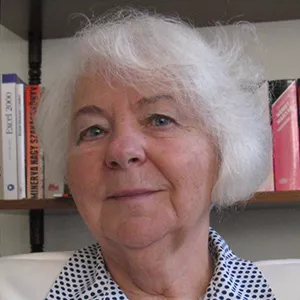
Gabriella Sátori
Institute of Earth Physics and Space Science
Gabriella Sátori is a doctor of the Hungarian Academy of Sciences, a candidate in earth sciences. She started her research career in 1971 at the Geodetic and Geophysical Research Institute in Sopron, and worked as an employee of the Institute until 2013. Her research interests include the propagation of lightning-induced electromagnetic waves in the Earth-ionosphere waveguide, the Schumann resonance, its relationship to terrestrial and space weather, and global climate change. She has founded an international scientific workshop in Sopron for the research of the Schumann resonance, and is an internationally recognized leading researcher in the field. Within the framework of international collaborations and projects, she has also contributed to the establishment of new SR measuring stations in Israel, Spitsbergen and Poland, modeled after the SR station in Nagycenk. She has participated as a guest speaker at many domestic and international events and conferences. She is currently still actively involved in the Institute's research on atmospheric electricity, and she is effective in nurturing the Institute's international relations. Her scientific work has been recognized with numerous awards and honors, including the civilian section of the Knight's Cross of the Hungarian Order of Merit.
József János Sisa
Research Centre for the Humanities
József Sisa is an art historian, a doctor of the Hungarian Academy of Sciences, and a university professor. He is a key figure in Hungarian art history writing, and between 2012 and 2016 he was the director of the Institute of Art History of the Research Centre for the Humanities. As head of the Institute, he played a prominent role in strengthening the international presence of Hungarian art history research and in launching the Institute's digitalization program. His research work, scientific organizing activities, and his role in university education are exemplary. He specializes in 19th-century domestic architecture, castle culture, architectural theory, and the history of garden design. He is the author of numerous studies, book chapters and independent monographs. His outstanding works include a handbook presenting the Hungarian architecture and applied arts of the 19th century, and a large monograph of the Parliament, both of which he wrote as author and editor. His international recognition is indicated by his numerous international research trips, conference presentations and publications. His scientific work has been recognized with prestigious awards and honors, including the Officer's Cross of the Hungarian Order of Merit, the Gyula Pasteiner Memorial Medal, the Fitz József Book Award and the Opus Mirabile Award.
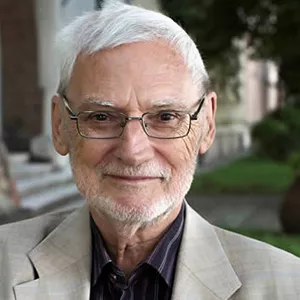
László Somfai
Research Centre for the Humanities
László Somfai is a Széchenyi Prize-winning music historian, university professor, full member of the Hungarian Academy of Sciences, and professor emeritus of the Liszt Ferenc Academy of Music. He has been a dominant personality in the field of Hungarian musicology and professional training for decades. Due to his achievements in the field of Haydn research and music source research, he is one of the most significant living figures in international musicology. He is an internationally recognized authority on Béla Bartók's musical legacy. From 1972, he managed the Bartók Archive for more than three decades, contributing significantly to the preparation of the Bartók-összkiadás (Bartók Complete Edition), which has been published on a regular basis since 2016. He is a member of the Mozart Research Institute in Salzburg and the Joseph Haydn Institute in Cologne. Between 1997 and 2002, he was the president of the International Musicological Society and the Hungarian Society for Musicology and Music Criticism. He is an international member of the American Academy of Arts and Sciences and a corresponding member of the British Academy. His scientific work has been recognized with numerous awards and honors, including the Széchenyi Prize, the Middle Cross of the Hungarian Order of Merit, the Erkel Ferenc Award and the Academic Award.
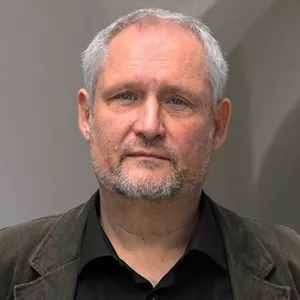
Gábor Vargyas
Research Centre for the Humanities
Gábor Vargyas is an ethnographer, cultural anthropologist, university professor, and doctor at the Hungarian Academy of Sciences. He is an outstanding representative of his profession both domestically and internationally, and has gained a serious reputation in the fields of scientific research, museology and university education. He is a leading figure in international Southeast Asia and Oceania research. For two years, he conducted field research in the central Vietnamese highlands, one of the least known areas of the world, from an ethnographic, linguistic and cultural point of view. He has published the results of his anthropological and social science research on the effects of modernization and globalization in scientific publications, lectures, photographs, films and exhibitions. He is the founder of the school of ethnography and cultural anthropology in Hungary and the head of numerous national and international research programs. Some of the intellectual and material treasures he collected can now be seen in the Museum of Ethnography. His scientific work has been recognized with numerous prizes and awards, including the Officer's Cross of the Hungarian Order of Merit and the István Györffy Memorial Medal of the Hungarian Ethnographic Society.
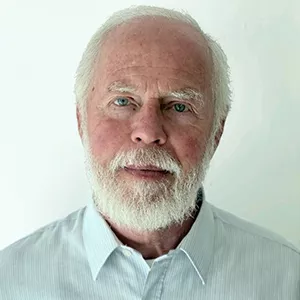
Gábor Vértesy
Centre for Energy Research
Gábor Vértesy is a physicist, doctor of the Hungarian Academy of Sciences, and a physical science PhD. He began his scientific career as a doctoral scholarship holder at the Central Research Institute for Physics, where he worked on the development of modern computing back-end storage. He has also achieved outstanding results internationally in the field of testing magnetic materials. His narrower field of expertise is the research of soft magnetic materials, magnetic hysteresis measurements, sensor developments and non-destructive material testing based on the electromagnetic principle. He is credited with developing the Magnetic Adaptive Testing method. He directed the development of several sensory devices based on new measurement principles, which are used in the field of non-destructive materials testing based on the electromagnetic principle. He is currently developing a new method suitable for the early detection of structural changes in ferromagnetic materials. His work as a scientific and conference organizer is equally remarkable, and he is an active participant in many successful international and domestic projects. His work has been recognized with numerous prizes and awards, including the MFA Institute Award.
